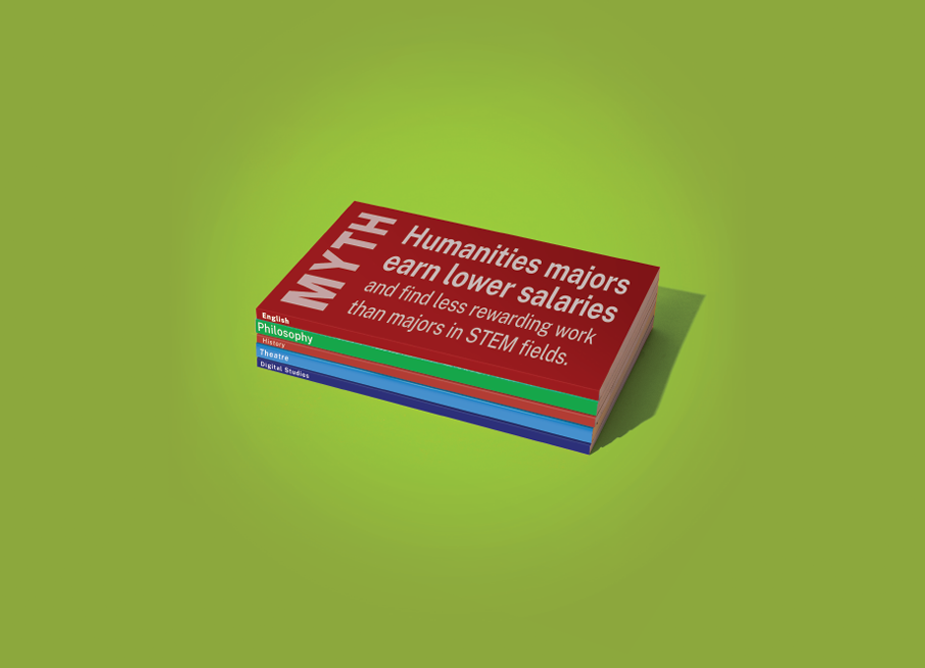The story that English majors end up working at Starbucks is just the latest version of a myth that’s been going around for decades. And though it’s not true–as the data here and elsewhere have consistently shown–people still believe it. Faculty and students majoring in liberal arts fields have consistently had to fight back against the idea that these majors are career dead-ends, or, worse, that studying English or History is something only students from wealthy families should do.
Whether you believe these ideas are deliberate lies or simply common misperceptions, if you care about the humanities, you need to push back. That’s what these posters and postcards are for: to help give you, your colleagues, your students, and their parents the facts they need to make free and informed decisions about their college career.
All posters come as PDFs or JPGs in a number of convenient sizes. Print them out yourself, or order prints from one of our recommended drop-shippers (we make no money either way). If you use our content, or if you have suggestions for variants or new versions, we’d love to hear from you.
Myths and Realities

Comparable Salary
Graduates with humanities majors earn comparable median salaries ($53,000 for English majors, for example) to those majoring in biology ($56,000), environmental science ($57,000), and psychology ($49,000).
Humanistic Skills
A Forbes magazine article writes that “today’s tech wave will inspire a new style of work in which tech takes care of routine tasks so that people can concentrate on what mortals do best: generating creative ideas and actions in a data-rich world.”


Underemployment
English majors and foreign language majors have a lower probability of being underemployed in their first job out of college than those who majored in biology, psychology, or business.
Employment
When it comes to getting a job, humanities majors experience rates of unemployment similar to those of business majors, physics majors, or criminal justice majors.


Graduate School
Majors in philosophy, literature, and history have among the highest average scores on the GMAT (for business and management), the LSAT (for law school), the MCAT (for medical school), and the GRE (for PhD programs).
Humanities Works is a project by Aaron Hanlon, Eric Hayot, and Anna Kornbluh.